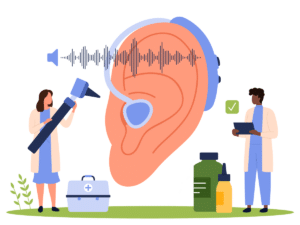6 WAYS TO OPTIMIZE BRAIN HEALTH IN ADULTHOOD

Nutrition and Hydration:
Eating a diet rich in fruits, vegetables, whole grains, lean proteins, and healthy fats provides the brain with essential nutrients like vitamins, minerals, and antioxidants. Hydration is equally important, since even mild dehydration can impair cognitive function.

Exercise:
Engaging in regular physical activity has numerous benefits for brain health. Aerobic exercises, such as walking, swimming, or cycling, increase blood flow to the brain, delivering oxygen and nutrients while removing toxins. Strength-training exercises, like lifting weights or stretching resistance bands, stimulate the growth of new neurons and enhance connections among brain cells, supporting cognitive function and memory. Speak with your doctor about exercise routines tailored to your abilities and needs.


Hearing health:
Addressing hearing loss is crucial for maintaining cognitive function. Auditory input is vital for attention and memory processes, and untreated hearing loss can lead to cognitive impairment. Using hearing aids or other assistive devices can improve auditory processing and support cognitive function.

Stress management:
Chronic stress has detrimental effects on brain health and cognition. Techniques like mindfulness meditation, visualization, deep breathing exercises, and yoga can help reduce stress and promote relaxation. Managing stress effectively improves mood and enhances cognitive clarity, attention, and memory.

Quality sleep:
During sleep, the brain processes and stores information acquired during the day, strengthening memory and cognitive abilities. Maintaining a regular sleep schedule, creating a comfortable sleep environment, and limiting screen time before bed, all support optimal brain health and cognitive performance.


